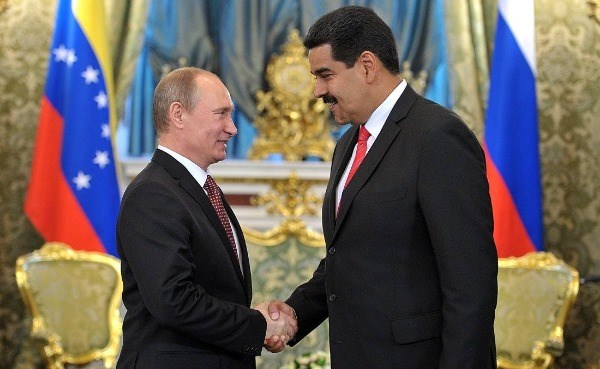Russia eases Venezuela’s debt repayments
Russia has agreed to restructure the loans it has issued to the Venezuelan government over the last few years, and has proposed a plan to revive the economy to Nicolás Maduro, Russian Deputy Finance Minister Sergei Storchak told RIA Novosti on the sidelines of the Gaidar Forum on Tuesday.
According to Storchak, Venezuela’s repayments schedule has been changed, since it had become impossible for Maduro’s government due to the economic degradation, food shortage, and the collapse of oil extraction faced by the country.
According to Russia’s Accounts Chamber, Venezuela began to default in 2017, when Caracas missed a payment of roughly $1 billion. The national oil company PDVSA has now declared default on its foreign debt.
In October 2017, a month before admitting bankruptcy, Maduro visited the Kremlin, where he was able to negotiate a 10 year extension for the loans.
Since 2006, Russia has loaned Venezuela a total of $17 billion, according to estimates by Reuters: this figure includes the intergovernmental loans and the agreement with Rosneft which gave the Maduro regime a $4 billion advance for oil purchases.
In November 2018, Maduro visited Moscow again, and after negotiations with President Vladimir Putin, he announced that Russia was prepared to invest another $6 billion in oil extraction and gold mining in Venezuela.
These funds will be classified as investments, not as new loans to Caracas, Storchak clarified on Tuesday.
He added that Russia has proposed to Venezuela an informal plan to revive the country’s economy, and is waiting for a response.
A “landing party” of officials from Russia’s economic bloc – the Federal Tax Service, Central Bank and Treasury, traveled to Venezuela to “share experience” in October. According to Bloomberg, the Russian delegation met with members of the country’s central bank, whose reserves are at less than $10 billion against a total foreign debt of $140 billion.
In the 6 years of Maduro’s presidency, Venezuela’s national currency, the bolivar, has devalued by a factor of 44, with inflation accelerating to 1.7 million percent. The economy has shrunk by nearly a third, and more than 3 million people have been forced to emigrate to escape from the shortage of medicine, food, and basic goods, which have been distributed by the army since summer 2016.
At the start of the week, Maduro was sworn in for his second 6-year term as president.
